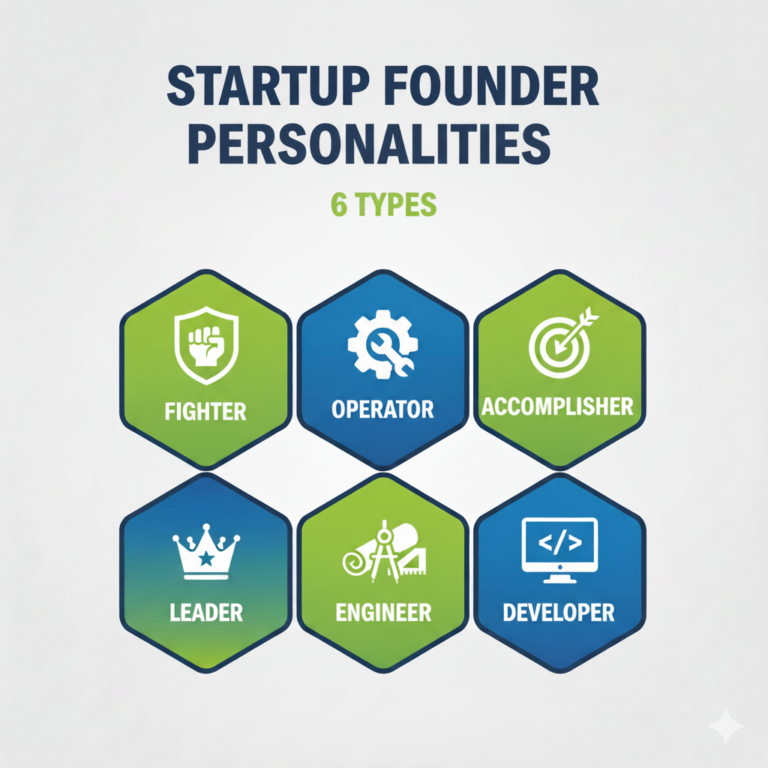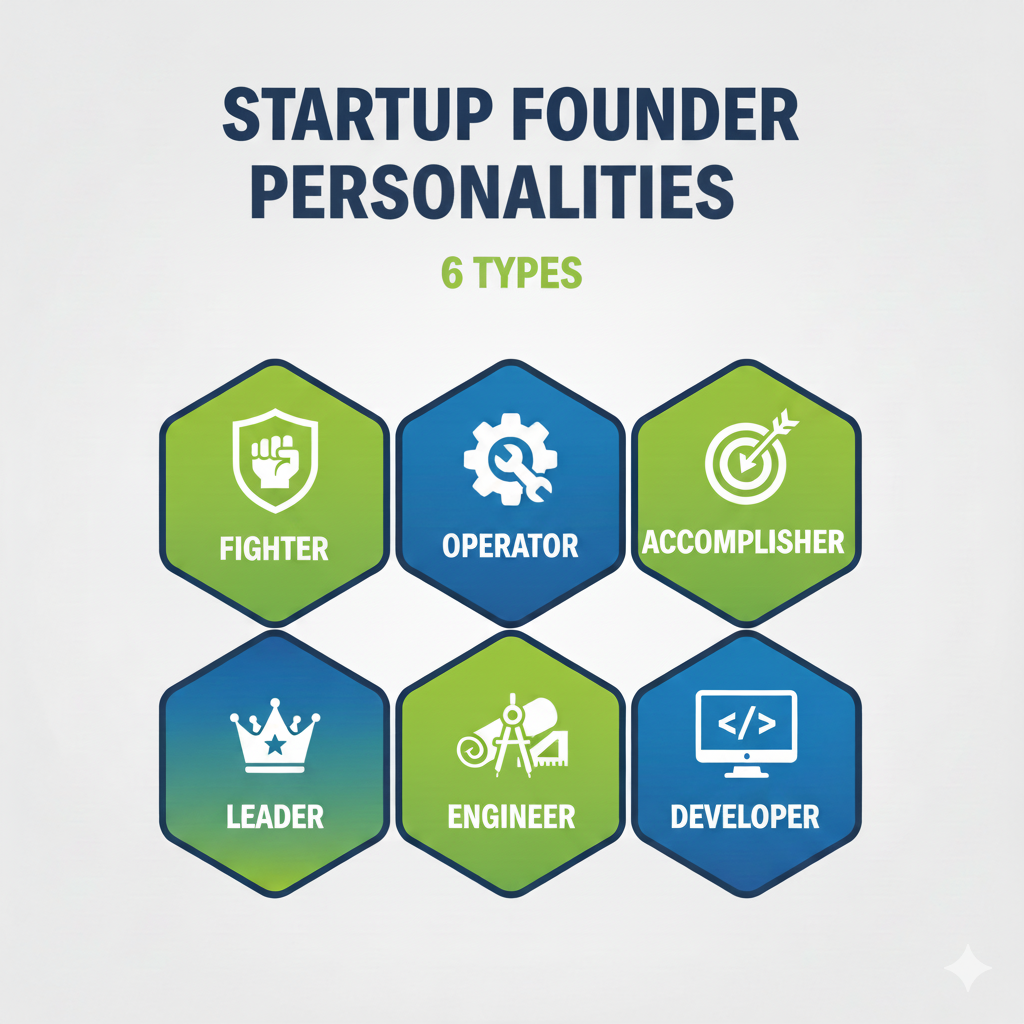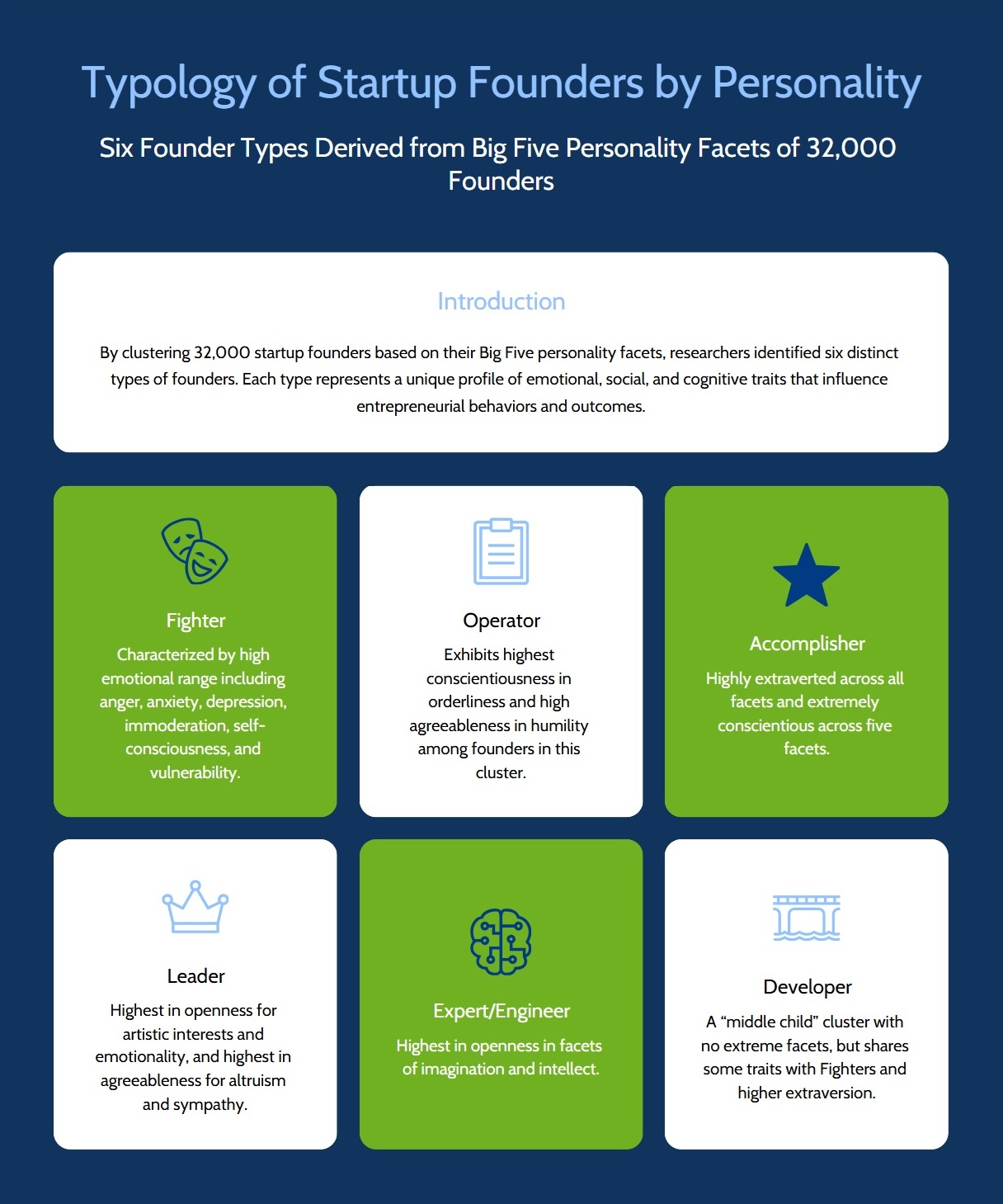Key traits: openness, extraversion, and lack of modesty
The study revealed three most important sub-traits: openness to new experiences and adventure, low modesty, and high activity. Openness, understood as a tendency to explore new possibilities, seems fundamental, as founders are the ones testing unknown territories. A lack of modesty helps them attract the attention of investors and customers, while high activity allows them to operate quickly and with energy, which is often decisive in a startup environment. It is important to distinguish these traits from the broader Big Five categories, the fit is at the level of specific behaviors, not general dimensions.
Founder Types
The analysis showed the existence of six distinct personality types, defined by the acronym FOALED: Fighters, Operators, Accomplishers, Leaders, Engineers, and Developers.
- Fighters are passionate, entrepreneurial technical leaders.
- Operators are well-organized and action-oriented individuals.
- Accomplishers are highly task-oriented and reliable.
- Leaders are characterized by high empathy and creativity.
- Engineers stand out for their innovation and intellect.
- Developers are niche technical and product talents.
Significantly, each style brings unique competencies, but mixed teams that combine different FOALED types are the ones that succeed, the principle of “complementarity” proves effective.
The importance of the team: more founders, greater diversity
Analyses show that startups with at least three co-founders see a dramatic increase in the chances of success, twice as high compared to solo initiatives. But it’s not just about the number—personality diversity is key. Startups with a well-arranged set of complementary FOALED types have an 8–10 times higher chance of success. The innovative model is called the “Ensemble Theory of Success“, it assumes that thanks to personality diversity, teams are more resilient, creative, and agile.
Conclusions and practical implications
The research indicates that the success of a startup depends not only on the idea or funding but largely on the number and personality of its founders. Startups with a higher number of co-founders, especially 6 or 7, have significantly higher chances of success than those created by a single person. Furthermore, it’s not just about the numbers, the psychological traits of team members are equally important. Key traits include openness to experience, low modesty, high activity, and even moderate emotional instability, which can facilitate quick risk-taking. Startups that combine diverse personality types have the greatest chance of success, instead of one “super-founder,” it’s better to rely on a complementary team.
5 key takeaways:
- Startups with 6–7 founders have up to 4 times higher chances of success than those with one.
- Openness to new experiences is the trait most strongly linked to a successful startup.
- Moderate emotionality can foster quicker reaction and innovation.
- Diversity of personality in the FOALED team (e.g., Leader + Developer + Operator) significantly increases the probability of success.
- It’s not just about technical competencies, but the psychological complementarity of co-founders.


